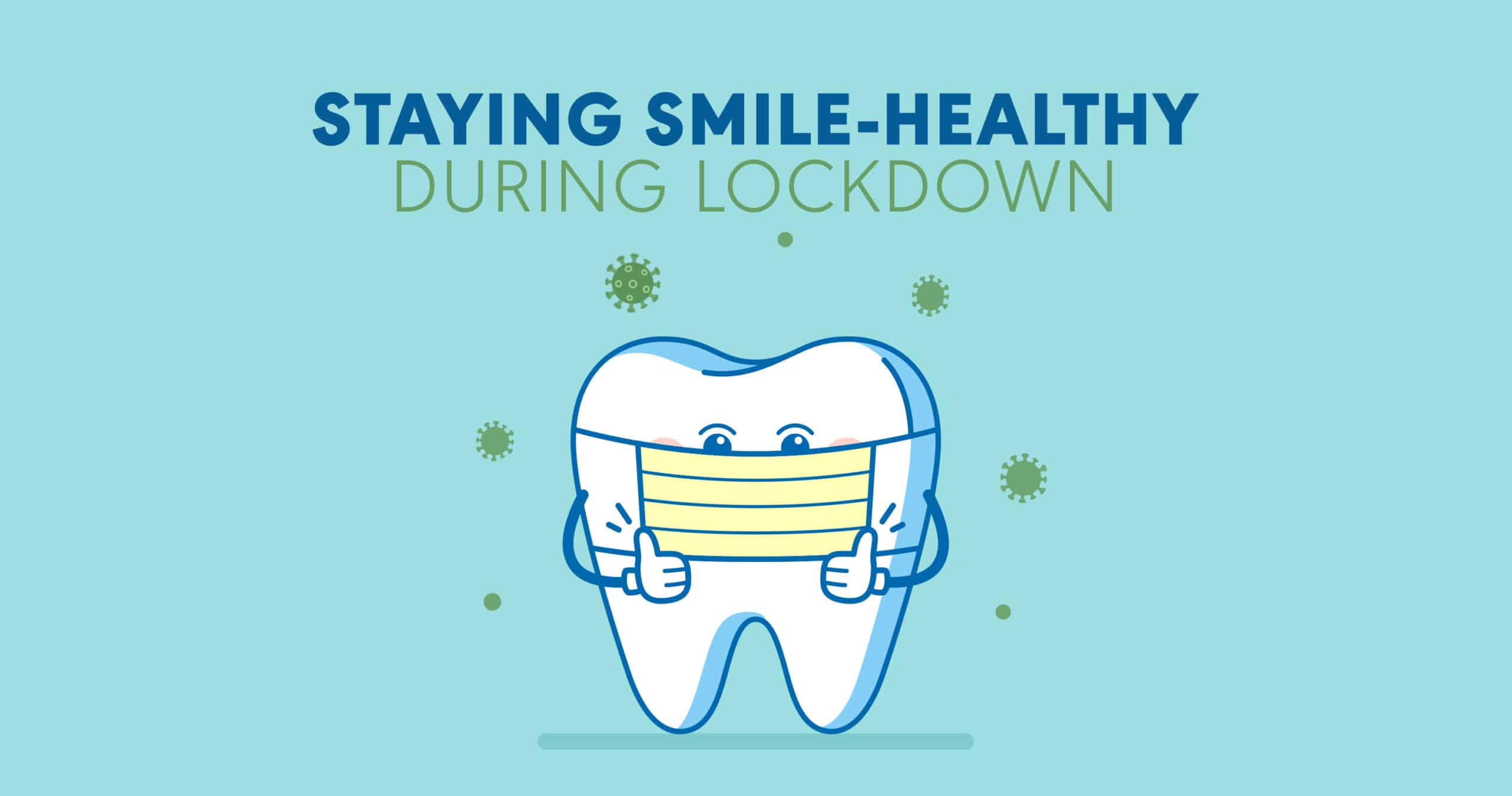
Dental practices all over the UK have been closed for several weeks. Although many clinics are now open again after lockdown measures were eased in June, most are operating a reduced service. At this time, when it’s not easy to secure an appointment, especially for a check-up, it’s vital to take good care of your teeth and gums. Here are some simple strategies you can employ to lower the risk of dental problems while practices are prioritising urgent cases.
Keep on top of oral hygiene
The best way to care for your teeth and gums and lower the risk of decay and gum disease is to keep on top of oral hygiene. Take two minutes every morning and evening to brush your teeth using fluoride toothpaste and floss or use interdental brushes daily to clean between the teeth. When you brush, devote an equal amount of time to each part of the mouth, taking care to clean every individual tooth. Using a brush with a small head is beneficial for reaching right into the corners. Once you’ve finished brushing your teeth, use your brush or a tongue scraper to clean your tongue. This will reduce the risk of dental disease and help to prevent bad breath (halitosis). Most cases of bad breath are caused by collections of bacteria that form at the back of the tongue. When these bacteria feed, they release gases, which have an unpleasant odour.
Minimise the risk of dental injuries
Dental injuries are not always preventable, but there are steps you can take to protect your teeth. Use a mouth guard if you’re playing sport, always wear a seat when travelling in a car or bus and avoid using your teeth to remove bottle tops or cut labels. Biting down on hard objects can damage the teeth, causing chips and even fractures.
Use self-help strategies
If you have minor dental issues, for example, mild toothache, you can use self-help techniques, such as applying an ice pack to ease pain and taking over the counter pain relief medication. Sticking to soft foods can also be beneficial. It’s crucial to check dosage instructions when taking any form of analgesics and to seek advice if pain persists or it becomes more intense. Throbbing pain can be a symptom of infections and abscesses. If you start to feel unwell, you have a high temperature, or your mouth swells, contact your dentist. Dentists are providing telephone and video consultations and they can refer patients for urgent services that cannot currently be offered at local practices.
Eat well
Your diet has a significant impact on your oral health. While some foods are beneficial for the teeth and gums, some can be harmful. Take care when planning meals and snacks. Keep an eye on your sugar intake and avoid eating and drinking acidic and sugary foods between meals. If you graze during the day, this means that your teeth are vulnerable, as bacteria produce acids that weaken the enamel when they feed. It takes time for enamel to recover, so you should try and stick to three main meals a day. If you get hungry, have a healthy, low-sugar snack, such as a piece of wholemeal toast, a lump of cheese, some nuts or raw carrot, celery or cucumber sticks. Calcium is vital for healthy, strong bones, teeth and nails, so make sure you hit your recommended daily intake (700mg for adults). Good sources of calcium include dairy products, leafy green vegetables, soya beans, tofu, nuts and bread made with fortified flour.
Summary
The global pandemic forced dental practices all over the UK to shut for several weeks. As clinics adjust to new ways of working and patient numbers and services are limited, it’s wise to take good care of your smile. Hopefully, these tips will help you steer clear of trouble.
You’ve Waited Long Enough
Get in touch with us to learn about award-winning, specialist-led cosmetic, restorative and general services at Reading’s home of slow dentistry.
Get in touch
